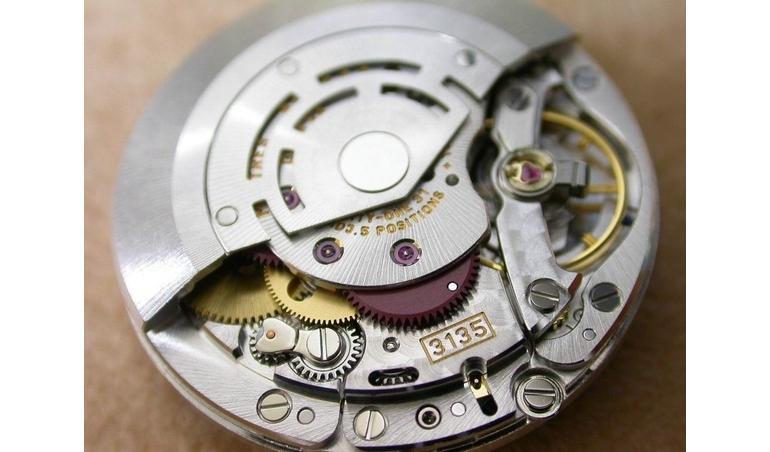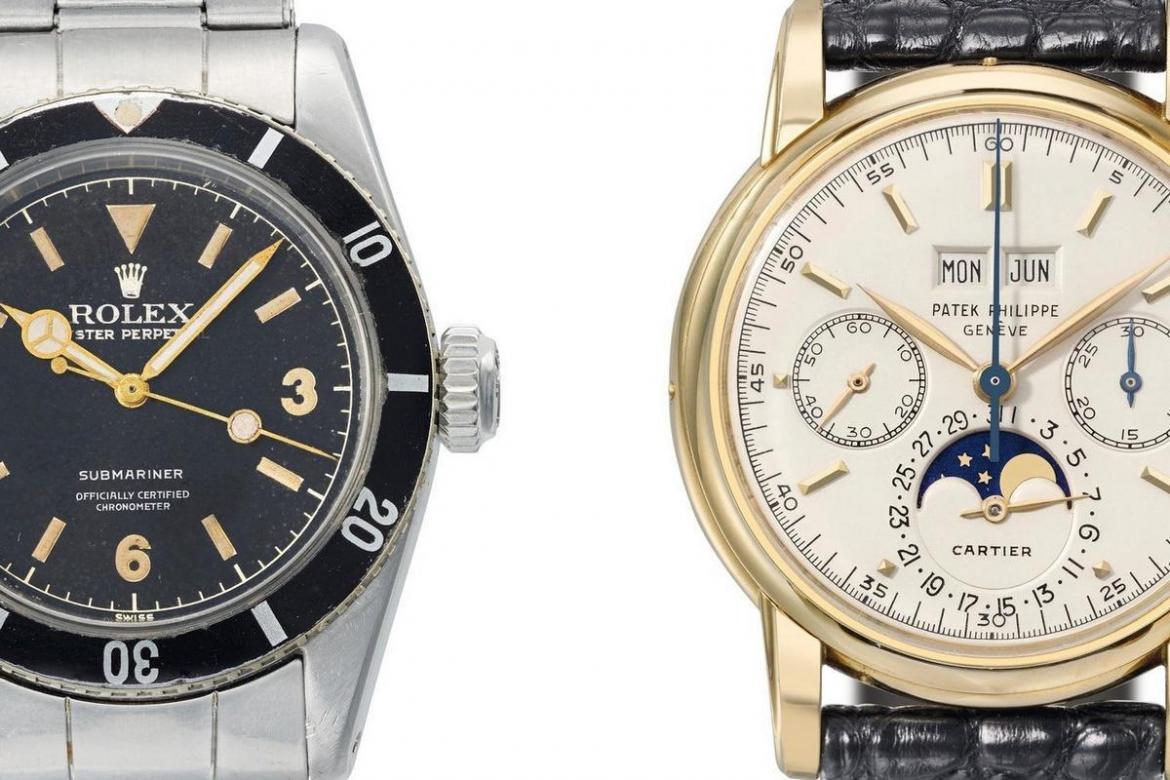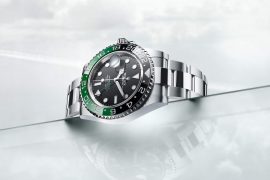So you have finally decided to invest in a watch, the first question that comes to a budding collector’s mind is should the timepiece be a Rolex or a Patek Phillipe? And why not, both Rolex and Patek have a rich history, have their own distinct style, their time pieces are instantly recognizable and most importantly they have a very active reseller market. Marc Montagne explains further.
Patek Philippe, Rolex. Those two names are usually the first to come up when discussing luxury watches. The prestige, the iconic references, the mind-blowing heritage and even the result at auctions are domains where both brands have a proven track record.
What I don’t understand however is why those two brands are so often compared. They simply do not compete in the same category! I wouldn’t compare Michael Jordan to Lionel Messi! Not to say that one category is better than the other, just that we are talking about two different leagues.
Let me list a few examples where Patek Philippe and Rolex are completely different.

Visibility of the movement. Take a Rolex. Now flip it. Notice something? The movement isn’t visible! On the other hand, most Patek Philippe watches have a sapphire caseback for you to admire the movement. On one side you have a brand that is putting all of their efforts on producing some of the most reliable movements for you not to worry about, on the other a brand that wishes you to enjoy their movements as a true work of art.
Finishing of the movement. Speaking of the movement, a great portion of Patek Philippe’s prices is linked to the amount of work that is done in the finishing of their movement. I mean look at the movement below:

Now, for Rolex, the finishing of the movement is much more basic. And there’s nothing wrong with that. It’s simply a different focus.

Industrialisation. Rolex produces watches in a much more industrialized way than Patek Philippe which requires more manual operations. This also explains the difference in production volumes, around 900′000 watches per year for Rolex and around 60′000 for Patek Philippe. As I was saying, two different worlds.
Design codes. Look at Rolex watches. One some watches you would have Mercedes hands (Submariner, GMT, Explorer), while on the Datejust, Day-date, Milgauss, Daytona etc. you will find the same other type of hands. Now just for the Calatrava collection from Patek you would have more different type of hands than within the whole Rolex lineup!
Now in terms of shapes, for Rolex, all watches are round! Then, for Patek, you have the Nautilus, the Aquanaut, the Gondolo, the Ellipse, the Twenty-4, pocket watches, clocks… the list goes on!
Materials. Rolex is producing mostly what we can consider as being sports watches. As a result, there are a lot of steel models for Rolex. On the contrary, Patek produces a lot of watches in precious material such as gold and platinum. Some would argue that Patek also produces steel watches, like the Nautilus. True. But remember how they marketed it: “One of the World’s Costliest Watches Is Made of Steel”

Complications. Minute repeaters? Tourbillons? Perpetual calendar? Worldtimers? Power reserve indicators? You won’t find them with Rolex. On the other side, Patek is famously known for its complications.
Those are just a few reasons why I think that those two admirable watch brands are totally different. You are not looking for the same thing when getting a Rolex than when getting a Patek. It’s simply a different purpose.
Stop comparing, just enjoy both.
For more responses head to Quora.
Quora answers is our weekly feature in which we pick first-hand experiences and interesting opinions from the Q&AA site.









